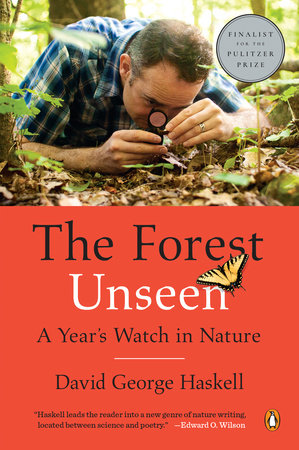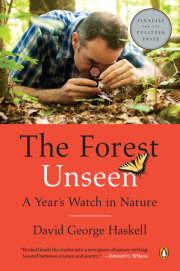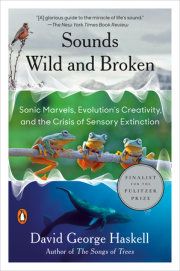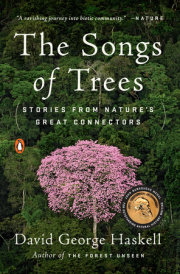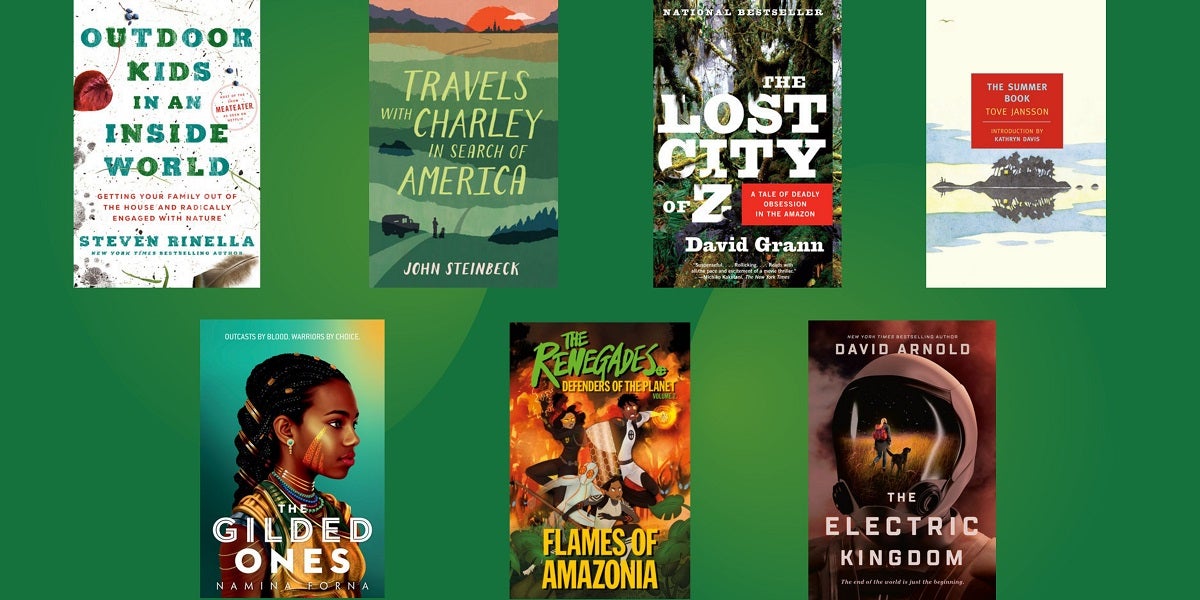Praise for The Forest Unseen:
“[Haskell] thinks like a biologist, writes like a poet, and gives the natural world the kind of open-minded attention one expects from a Zen monk rather than a hypothesis-driven scientist.”
—James Gorman, The New York Times
“Very much a contemporary biologist in his familiarity with genetics and population ecology, [Haskell] also has the voracious synthetic imagination of a 19th-century naturalist. More importantly, Mr. Haskell is a sensitive writer, conjuring with careful precision the worlds he observes and delighting the reader with insightful turns of phrase.”
--The Wall Street Journal
“I really enjoyed—and learned a tremendous amount from—[The Forest Unseen] . . . [it] opened the world up to me in a new way.”
—Elizabeth Kolbert, author of The Sixth Extinction
“What goes on over the course of a year, in one square meter of old growth forest? Everything, to those who look. Haskell’s writing is natural history, in every sense of the phrase, at its very best.”
—Richard Powers, author of The Overstory, PBS Newshour
"[Haskell] documents the marvelous profusion of life . . . [a] magical look at the interconnectedness of the natural world, and the invisible ties that bind us together."
—The Guardian
“Haskell leads the reader into a new genre of nature writing, located between science and poetry.”
— E. O. Wilson, Harvard University
“[Haskell's] observations--of lichens, snowflakes, salamanders, and more--are deftly interwoven with the science. His account is fascinating, whether he's stripping off in January to experience the physiological effects of severe cold, describing the symphonic sounds of trees in a high wind, or wondering at the bacteriological properties of a vulture's digestive tract.”
--Nature
“Mixing poetry with natural history, [Haskell] follows subtle scientific threads such as species interactions by observing the seemingly mundane--a deer track, scraps of lichens, even a golf ball--to conclusions of gratifying depth.”
--Conservation Magazine
“[The Forest Unseen] is a 'nature book,' and a great one, but it's also and less obviously a book about human nature. You can't read its lyrical, tactile prose without confronting the whole question of our place in the natural order, and of what we're doing here. If we want to last much longer on this planet, we'll have to learn to think differently and more deeply about those things, and Haskell can be one of our guides.”
--John Jeremiah Sullivan, author of Pulphead

